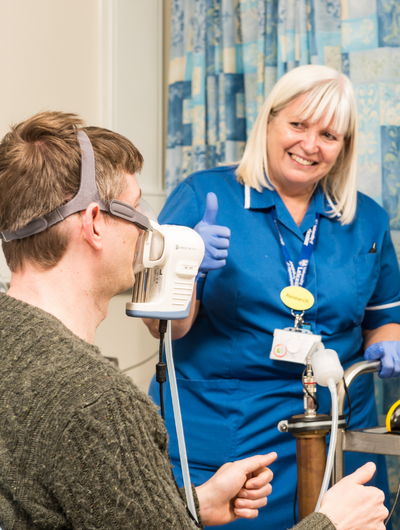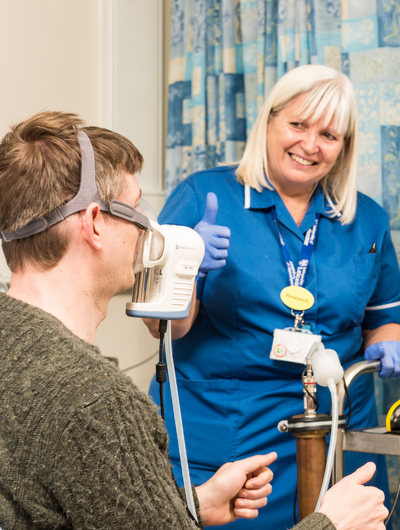Innovation
LuCID (Lung Cancer Indicator Detection)
Summary
The LuCID (Lung Cancer Indicator Detection) project will allow Owlstone’s existing chemical detection technology to be used to diagnose lung cancer, by measuring the trace chemicals present in the breath of lung cancer patients. By diagnosing cases earlier, and allowing more effective and less expensive treatments, LuCID will save 3200 lives and £82m each year.
Patient perspective
LuCID promises the twin benefits of a more pleasant clinical experience and improved healthoutcomes. Current lung cancer screening techniques, such as chest x-ray, CT-scan and bronchoscopy, are not without risks, and bronchoscopy in particular is a highly invasive medical procedure, involving a tube being fed through the nose or mouth, down the windpipe and into the lungs. By contrast, a breath test is a straightforward, minimally-invasive procedure that can be quickly and easily carried out.

Economic impact
Cancer Research UK estimates the average cost of treating patients diagnosed with Stage IV lung cancer to be £13,078, while treatment for patients diagnosed at Stage I will cost just £7,952 on average. Increasing the proportion of patients diagnosed at Stage I from 14.5% to 25% will lead to a corresponding reduction in treatment costs of £82m per year. For Owlstone, adoption of the breath test into a national screening program would lead to around 1.3 million tests being carried out each year, at an estimated cost of £15 per test.
“If you could change only one thing in the fight against cancer, it would be to detect the disease earlier where existing treatments are already proven to save lives. Owlstone’s technology has the potential to deliver a quick and easy-to-use breath test, and SBRI Healthcare funding is allowing us to turn that potential into a reality.”
Billy Boyle, Owlstone Co-Founder

